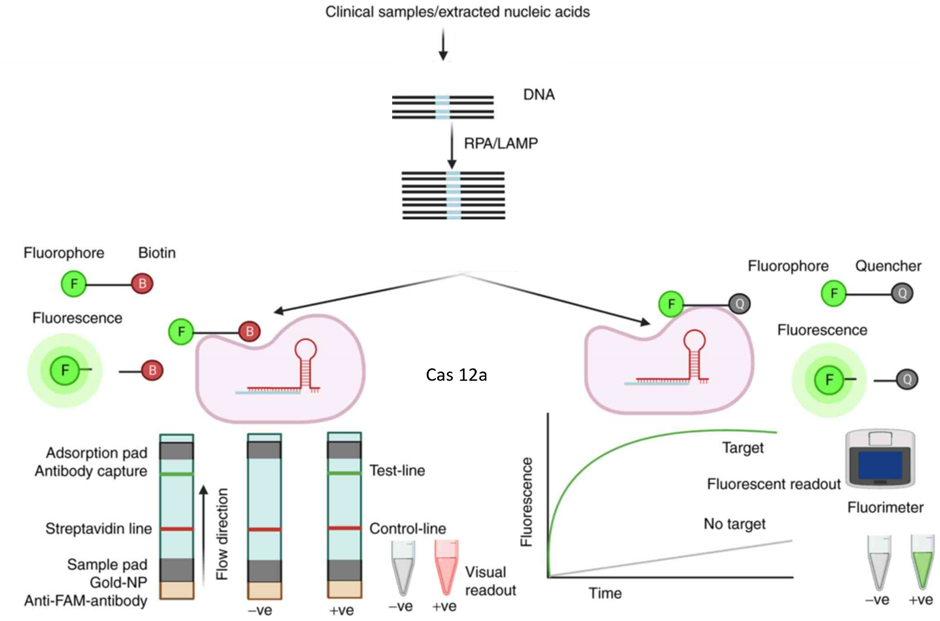Cervical cancer remains a major global health concern, with a significant number of cases and fatalities in 2019. Many women do not participate in early screening for high-risk Human Papillomavirus (HPV) infection, increasing their risk of developing cervical cancer. To address this, our project focuses on developing a highly sensitive and specific protocol for the early detection of cervical cancer-associated methylation markers. This entails targeting CpG islands, employing isothermal amplification for DNA amplification, and the CRISPR-Cas12a system for signal generation. This integrated approach holds promise for early diagnosis and monitoring, with potential applications in clinical settings and point-of-care diagnostics.

Introduction
In 2019, cervical cancer ranked as the fourth most prevalent malignancy among females, encompassing a staggering figure of over half a million documented cases and an unfortunate death toll exceeding 300,000 globally [1]. A significant proportion of women refrain from engaging in screening initiatives specially devised for the early detection and monitoring of high-risk Human Papillomavirus (HPV) infection, thus heightening their vulnerability to the development of high-grade cervical intraepithelial neoplasia (pre-malignant) or full-blown cervical cancer (malignant) [2]. To enhance participation rates, self-sampling tests for the identification of high-risk HPV types have been introduced. Consequently, a pressing requirement arises for developing a protocol for the detection of biomarkers present in urine clinical samples for the early detection of cancer. The biomarker of interest is the methylation of cytosine residues within DNA. However, it is noteworthy that the methylation of promoter CpG islands has emerged as a pivotal hallmark in the context of numerous cancer cells. This significance stems from the fact that certain genes on the DNA must remain consistently expressed to prevent the transformation of a "normal" cell into a cancerous one. Consequently, the detection of cytosine methylation within these specific "cancer regulatory" segments of DNA, located on the promoter CpG islands of these genes, affords a high degree of confidence in asserting that these DNA fragments originate from either a cancer cell or a cell in the process of undergoing malignant transformation [3].
In this assignment, you will work on various molecular biology techniques for the detection of methylation markers followed by detection and signal amplification using CRISPR Cas12a. This assignment will consist of protocol optimization and probe design. After successful development, this assay will be adapted to a microfluidic chip for fast, reliable, and easy patient diagnosis.
Contact persons:
References:
[1] P. A. Cohen, A. Jhingran, A. Oaknin, and L. Denny, ‘Cervical cancer’, The Lancet, vol. 393, no. 10167, pp. 169–182, Jan. 2019, doi: 10.1016/S0140-6736(18)32470-X.
[2] B. C. Snoek et al., ‘Genome‐wide microRNA analysis of HPV‐positive self‐samples yields novel triage markers for early detection of cervical cancer’, Intl Journal of Cancer, vol. 144, no. 2, pp. 372–379, Jan. 2019, doi: 10.1002/ijc.31855.
[3] J. E. van Dongen, Novel biosensors for early cancer detection: development of gold nanoparticle and CRISPR/Cas assays for the optical detection of cancer biomarkers in urine. Enschede: University of Twente, 2022.
